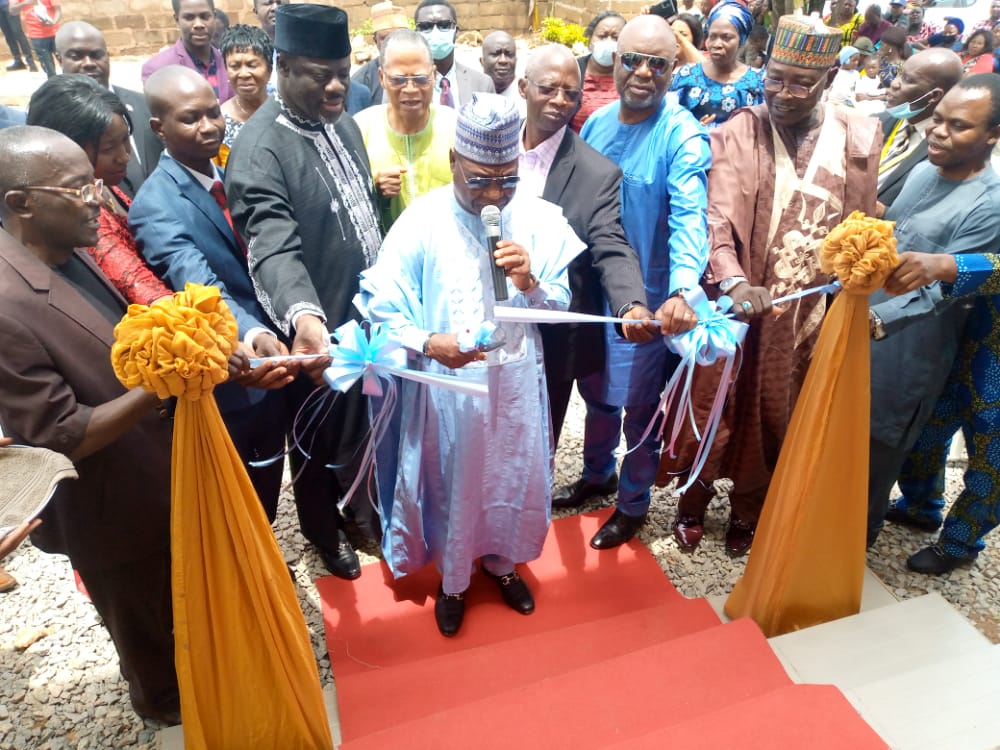Following the persistent attacks on four local government areas of Plateau State have left thousands of women widowed and children orphaned. ISAAC SHOBAYO visited the IDP camps and shared their tales of suffering in this feature.
In the past three months, Plateau State has witnessed unprecedented attacks in four local governments, namely in Mangu, Barkin-Ladi, Riyom and Bokkos, which have resulted in the death of close to 400 people. The crisis has swelled the number of internally displaced persons (IDPs) in different camps across the affected council areas.
Apart from the killings, the attacks have led to wanton destruction of property, including houses and farmlands. The surviving victims mostly women and children have had to flee their homes, with many communities now deserted. The mindless attacks have resulted in the death of many young men, leaving many of the women and children as widows and orphans with little or nothing to live on.These widows and orphans are left impoverished.
According to the Nigerian Tribun no fewer than 18,000 IDPs are in Mangu Primary School alone. There are other camps across the other affected local government areas; the inmates rely on humanitarian assistance for survival.
Apparently disturbed by the plight of these vulnerable victims, a group known as Gideon and Funmi Para Mallam Peace Foundation recently raised an alarm over the plight of internally displaced persons in Plateau State.
The Foundation, in a statement, stated that there are currently 18,751 internally displaced persons (IDPs) who are now housed in 14 camps.
“The 14 camps are hosted by the Church of Christ in Nations (COCIN) Local Church Councils (LCCs). A breakdown of the IDPs shows 2,081 widows and 6,066 orphans between the ages of zero and five years. Old people account for 1,057 and teenagers and adult orphans account for 828.
“A total of 6,603 households are currently affected by these deadly attacks. Over 300 lives have been lost in Plateau from April to date. Out of this number, over 200 lives have been lost to sustained violent attacks in Mangu LGA as of Saturday, July 8, 2023,” said the group.
Similarly, the president of another group called Wake Up Call, based in Jos, Plateau State, Reverend Danjuma Jonathan, lamented the sharp increase in the number of widows and orphans in the crisis-ridden parts of the state.
According to him, the conditions of living in IDP camps are deplorable, adding that it requires urgent intervention, especially for the children who are out-of-school and are roaming around the IDP camps. He said that the government should consider their plight and plan ahead for their future.
Many of the widows in the IDP camps have resorted to menial jobs like fetching water and carrying people’s loads in the market among others to survive and to take care of their elderly relatives and children who are out of school.
When the Nigerian Tribune visited the IDP camp at a primary school in Mangu Local Government Area, it was an eyesore. Apart from the fact that the IDPs were kept in an unhygienic condition, the children who are of school age were seen playing around, while their parents, mostly women, were looking helpless about their plights.
A cross-section of widows who spoke to the Nigerian Tribune narrated the gory incidents that led to the deaths of their husbands and how they have been trying to survive thereafter.
A mother of four, Sifiana Daniel, whose husband was killed during an attack on the Murish community of Mangu Local Government Area, said her husband and 13 others were brutally killed by bandits while trying to put up a defence during the invasion of Murish.
“It was a pathetic situation which I don’t wish to remember. On Friday night, the herdsmen swooped on our community in large numbers. The men hurriedly told all the women and children to relocate to the next community. While we were running, we could hear the sound of gunshots.
“The following morning, some of us summoned the courage to return. But we met people of the surrounding communities in large numbers mourning and preparing to bury the remains of the dead. My husband was butchered with a machete beyond recognition. He was killed while defending our community.
“Since then, I have been in this IDP camp with my children because virtually all the houses in Murish were burned down. If I wake up in the morning, I will go to the market to do some menial works to feed my children. Since May, my children have been out of school and no one has come to my aid; the government has not said anything. If you look around the camp, there are so many children who have stopped going to school,” she lamented.
Another widow, Rebecca Yohanna, who said she watched her husband being killed by the bandits, pointed out that the marauders stormed her community, Kianpus, when most of the inhabitants had gone to bed.
“The bandits struck in the night when most of the villagers had gone to bed. They set many houses on fire and killed people at random. They dragged my husband out before my presence and that of our three children. The bandits refused to listen to our repeated pleas to spare his life. They shot him at close range and thereafter shot him again till they saw he was dead,” she said.
Rebecca said since then she has been living in the IDP camp without any support apart from the occasional gesture by some philanthropic organisations and well-meaning Nigerians. She said the government has not intervened.
The tale of Rohda Barkim and Serah Jibril from Kombili village is not different from that of Rebecca. According to them, their husbands were also killed by bandits in a gruesome manner. Both of them are now struggling to fend for themselves and their children.
Those who spoke with the Nigerian Tribune at the IDP camp appealed to the state government to come to their aid before the next academic session commences in September. They said they want their children back in school and their sufferings ameliorated through government support.
The national president of the Mwaghavul Development Association (MDA), Sir Joseph Gwankat, said the plight of the IDPs requires urgent intervention by the government. He said it will be difficult to ascertain the number of widows and orphans, adding that many of them can no longer dwell in their communities and villages because their houses had been burnt by the bandits.
He noted that the association could not tell the number of houses that were burnt and the number of women who lost their husbands. According to him, the communities are not safe while more communities are still being attacked.
A human rights activist, Dr Gideon Ibrahim, advocated special consideration for trauma healing among widows, orphans and children. He said that women and children are often at the receiving end of violence and, therefore, should be given special consideration in trauma and healing programmes.
….
Source: Nigerian Tribune



















